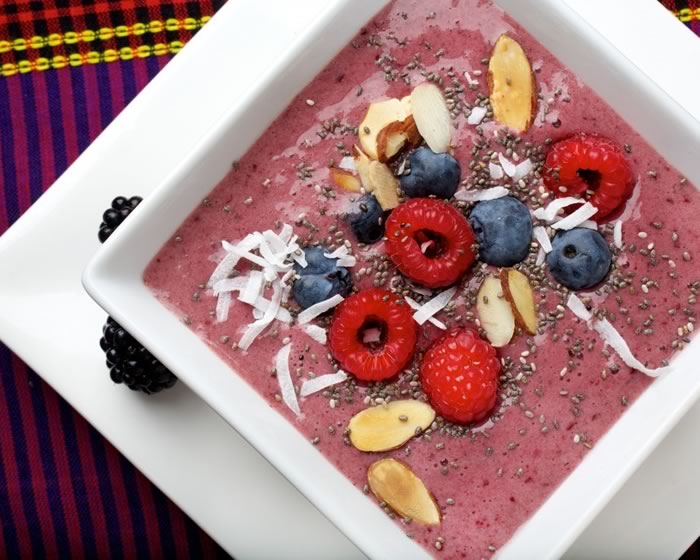A question about smoothies came up in an on-line nutrition chat I ran for the Washington Post, and since the topic is so popular I thought I’d share my reply here with a few tips for enjoying them healthfully:
Skip protein powders: To me, they are the very definition of a processed food. They may be helpful in special cases if a person’s diet is highly restrictive or they have special medical needs. But these powders are not necessary for the average person, and whole foods are always my first choice. A scoop of nut butter or a handful of chopped nuts, and/or seeds add plenty of protein in a minimally processed way.
Stick to dairy milk if your diet allows: Certainly non-dairy milks offer great alternatives for vegans and those with lactose intolerance. I also find them fun to use in recipes when I want subtle flavor variations. But there is no reason to swap them for regular low-fat milk from a nutritional perspective if you don’t need to. Dairy milk has a significant amount of protein: 8 ounces of milk has as much protein as an egg, while most plant milks have very little. Plus, dairy milk is an excellent source of several nutrients and has no added sugars or preservatives, which many packaged alternative milks often have. I personally stick with low-fat milk as the main staple in my home.
Avoid added sugar: I add ripe banana (frozen) or dates to my smoothies for sweetness. When you do that you don’t need added sugars.
Use whole fruit instead of juice: By using whole fruit (fresh or frozen) rather than juice in your smoothie you get all-important, filling fiber and a slower blood sugar rise.
Check out a few of my favorite smoothie recipes:
- Fruit Smoothie with Oats and Kefir
https://www.elliekrieger.com/recipe/fruit-smoothie-oats- kefir/ - Mocha Java Smoothie
https://www.elliekrieger.com/recipe/mocha-java-smoothie/ - Blueberry Blast Smoothie
https://www.elliekrieger.com/recipe/blueberry-blast- smoothie/ - Cherry Berry Smoothie Bowls
https://www.elliekrieger.com/recipe/cherry-berry-smoothie-bowls/



